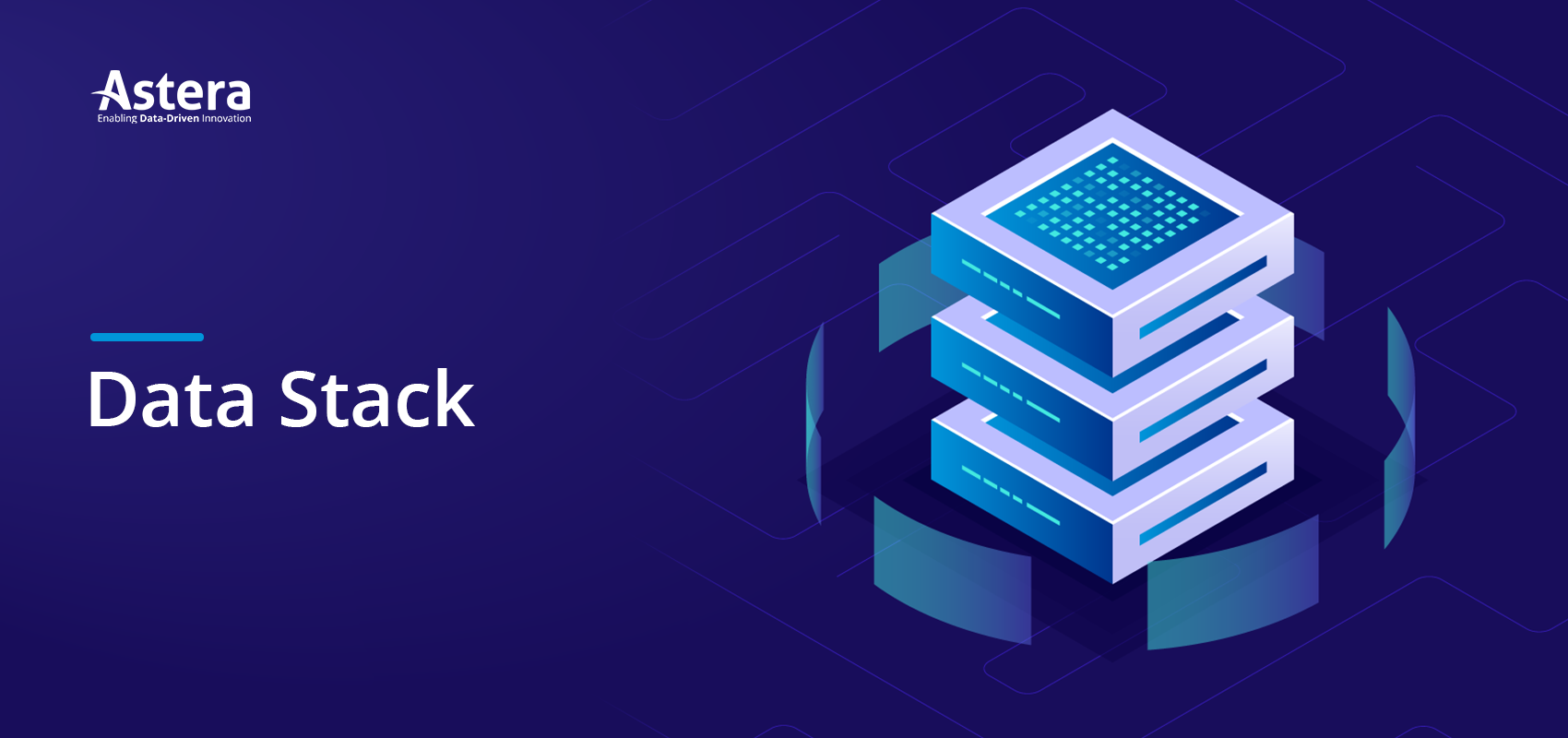
B2B Data Integration Simplified using Astera Data Stack
B2B Data Integration helps businesses streamline operations by effectively managing information from various sources. In today’s connected world, companies operate within extensive networks of partners, suppliers, and stakeholders. However, gathering and integrating data from these diverse sources can be complex due to regulations and economic variations.
Astera Software has developed the Astera Data Stack Platform, a no-code b2b integration tool that simplifies data integration for businesses. It is one of many data integration tools used in gathering information from different sources and ensuring data accuracy. The B2B integration platform streamlines the process of connecting and combining data, empowering organizations to stay ahead.
With Astera Data Stack, businesses can easily gather and combine data from partners, suppliers, and external parties. The platform eliminates manual processes, automates tasks like extraction, transformation, and loading, and ensures efficient and accurate data handling. This enables businesses to make informed decisions and collaborate effectively with partners and suppliers.
What Is B2B Data Integration?

Data integration means combining data from different sources to make it easier to analyze and use. In B2B (Business to Business) data integration, the goal is to securely connect businesses so they can share data efficiently.
By setting up secure connections, we reduce the need for manual work. In turn, we make it faster and more accurate to share data. The main purpose is to give businesses reliable information from many sources, so they can stay competitive in their industries.
B2B data integration is important because it makes sure businesses have the latest and most accurate data. This helps them make smart decisions and get an edge over their competitors.
The Seven Major B2B Business Models
B2B business models are strategies used by companies to interact with other businesses. Here are seven major models:
- Manufacturer/Distributor Model: Manufacturers produce goods while distributors sell and distribute them.
- Supplier/Procurement Model: Suppliers provide goods or services to meet business procurement needs.
- Marketplace Model: Digital platforms like Alibaba and Amazon Business connect buyers and sellers for streamlined transactions.
- Franchise Model: Franchisors grant the right to use their brand, products, and systems to franchisees.
- Software-as-a-Service (SaaS) Model: SaaS companies offer cloud-based software through subscription access.
- Platform-as-a-Service (PaaS) Model: PaaS providers offer platforms and tools for businesses to develop and manage their own applications.
- Value-Added Reseller (VAR) Model: VARs enhance products or services and sell them to other businesses.
The Challenges of Manual B2B Data Integration
Data integration involves three main phases: Extraction, Transformation, and Loading/Integration. Let’s explore the challenges faced in each phase:
Extraction:
- Combining data effectively from different sources can be difficult.
- Dealing with duplicated data can lead to errors.
- Managing different versions of the same dataset can cause conflicts.
Transformation:
- Converting data into a consistent format for easy use.
- Aligning external and internal data formats.
- Handling inaccurate and abnormal data.
- Ensuring data quality and consistency.
Loading/Integration:
- Establishing a robust data storage system to store all the transformed data.
- Providing custom datasets to business users through APIs.
- Ensuring data security and privacy.
Overcoming these challenges is crucial for utilizing external data effectively and gaining valuable insights. This can drive business growth and innovation.
The Tools That Make up Astera Data Stack

Astera Data Stack is a collection of five powerful tools that simplify B2B integration and data management. Let’s break down each tool:
- ReportMiner: It is a helpful tool that extracts valuable information from different types of data. This can be done even if it’s not organized in a specific way. You can easily create extraction templates by dragging and dropping elements. It can even extract data from images using OCR technology.
- Centerprise: It is user-friendly software that smoothly integrates data from various sources. You can design, execute, and monitor data integration workflows with this tool. It supports different data formats and offers features like data profiling, cleansing, mapping, and transformation to ensure high-quality data.
- DWBuilder: It simplifies the process of building and maintaining data warehouses. It brings together data from different sources into a unified view, providing valuable insights for decision-making. You can design data models and workflows visually, and it automates the ETL (extract, transform, load) processes.
- EDI Connect: It helps exchange electronic documents with trading partners using standard formats. It supports popular EDI standards and includes features like document mapping, validation, and partner management. It ensures secure transmission and provides monitoring capabilities.
- API Management: It allows businesses to manage, secure, and monitor APIs (application programming interfaces). It helps control access, manage usage limits, and ensure data security. It supports various API protocols and offers insights into API usage.
Astera Data Stack offers the above B2B integration solutions by providing a single interface. It does it to extract, integrate, warehouse, exchange, and utilize data from multiple sources. It removes the need for extensive coding knowledge and resources, making data management efficient for businesses in any industry.
Benefits of B2B Integration with Astera Data Stack
Astera Data Stack offers many benefits for businesses aiming to enhance their B2B integration processes. Let us examine these advantages through real-life examples.
- Improved Efficiency: Astera Data Stack automates integration tasks, saving time and effort. For example, the Union League Club in Chicago reduced the time spent on tasks by 70% using the platform.
- Cost Savings: The platform reduces the need for coding and technical resources, resulting in cost savings. VinSolutions, for instance, decreased the time required to capture data from two months to just an hour. This removed the need for extensive custom coding.
- Enhanced Data Accuracy: Astera Data Stack ensures reliable data capture and quality with AI-enhanced templates. Novartis, a medicine company, using the platform to manage data from retailers, enabling them to make accurate forecasts and informed decisions.
- Faster Decision-Making: Real-time insights from combined data enable faster decision-making. An engineering company in Finland improved after-sales services and customer retention by automating data extraction processes.
- Data Security and Compliance: Astera Data Stack puts forward data security, helping businesses protect sensitive data while meeting compliance requirements. Vanderbilt University, for instance, successfully met reporting requirements for their investments while maintaining data security.
- Simplified Partner Onboarding: Astera Data Stack facilitates collaboration between businesses by simplifying partner onboarding processes. A Michigan education institution transformed their data management by adopting the platform.
- Growth Potential and Flexibility: The platform can handle growing data volumes and integrates with various formats and platforms. This allows it to adapt to changing business needs. GaP Solutions, a retail management software developer, achieved faster invoice processing and improved productivity with Astera Data Stack.
- Real-time Monitoring and Reporting: Astera Data Stack offers real-time monitoring and reporting features, ensuring efficient workflow management. Its debugging capabilities and reliable support contribute to smooth integration processes.
Conclusion
The Astera Data Stack Platform is quite a helpful tool for B2B data integration. It makes it easier for businesses to connect and manage their data, so they can compete in our connected world. With Astera Data Stack, businesses can gather, transform, and load their data from different sources without doing everything manually.
It has impressive features and benefits that have been proven to work for businesses of all sizes and industries.
If you want to see how Astera Data Stack can help your business, you can try it out for free. Sign up for a trial version and see if it is appropriate to your company’s needs. Don’t let data integration problems slow hinder your business.
Use Astera Data Stack to make your data management smoother. Start improving your data management skills in today’s data-driven world!
 Astera AI Agent Builder - First Look Coming Soon!
Astera AI Agent Builder - First Look Coming Soon!


